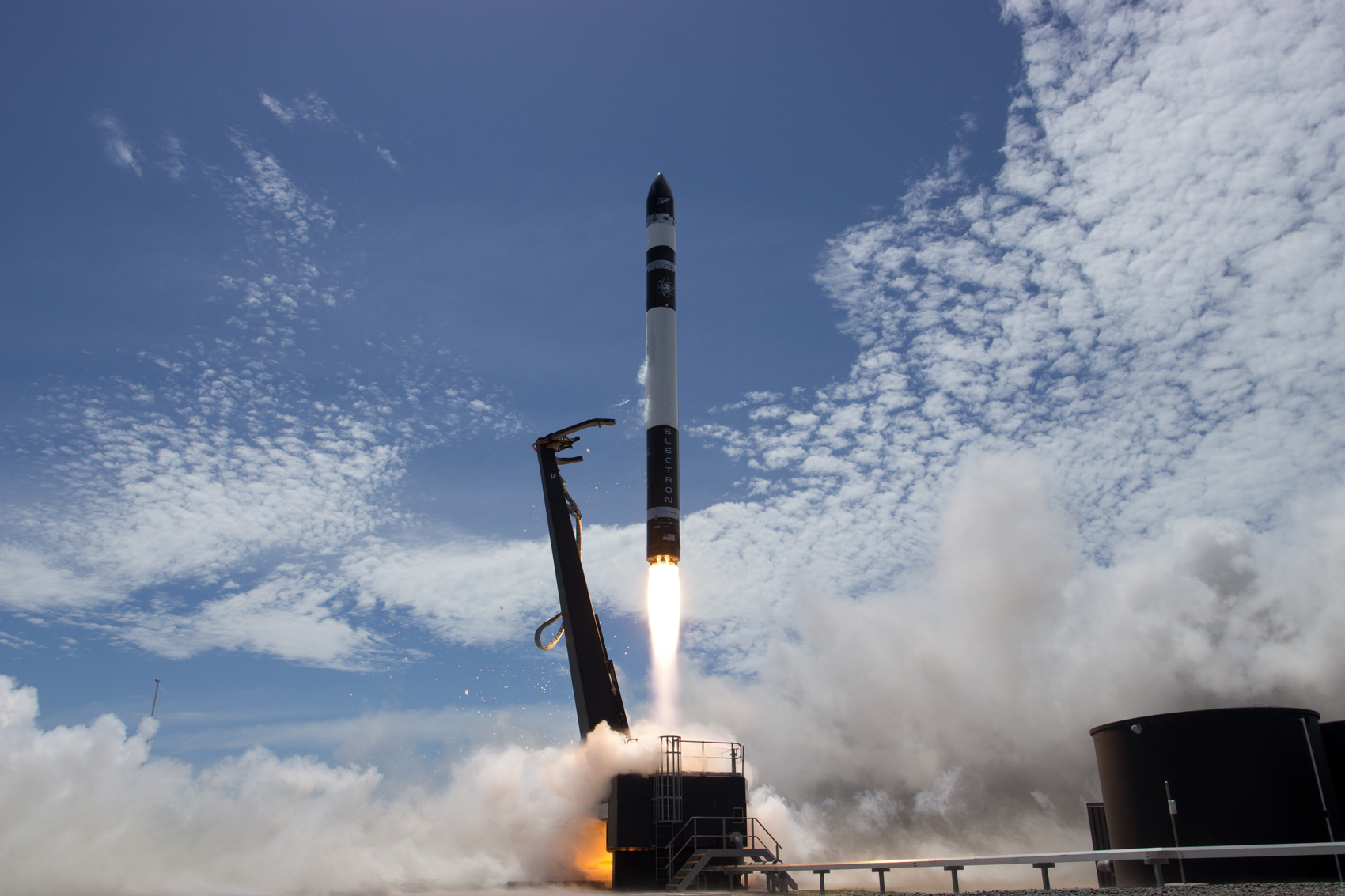In the summer of 2017, the company Rocket Lab officially tossed its hat into the commercial aerospace (aka. NewSpace) ring with the first test flights of their two-stage Electron Rocket. Dedicated to providing cost-effective launch services for the small satellite market, the company began conducting commercial launches from their complexes in New Zealand and California using the lightweight Electron.
Looking to cut the costs associated with individual launches further, Rocket Lab has decided to pursue reusability as well. In early March, before the isolation orders were issued, the company achieved a major milestone when it conducted a successful mid-air recovery of the test stage of an Electron Rocket – which involved a helicopter catching the test stage after its parachute deployed.
The test, which was captured on video (see below), consisted of two helicopters dropping and recovering the test stage. The first helicopter flew the test stage to a high-altitude spot and then dropped it over the Pacific Ocean off the coast of New Zealand. The test stage then deployed its parachute to slow itself down enough for the second helicopter to capture it in mid-air.
This was done with a tether and a specially-designed grabbling hook that grabbed hold of the parachute’s drogue line at an altitude of 1524 m (5000 ft). After catching it on the very first try (no small accomplishment), the test stage was then carried safely back to land. This successful test is the latest in a series of milestones as the company works towards the realization of a reusable rocket.
In addition, the successful recovery is a major step towards increasing launch frequency since it means the company will no longer need to build a new first stage for every mission. Said Peter Beck, Rocket Lab’s founder and CEO, in a recent company statement:
“Congratulations to the recovery team here at Rocket Lab on a flawless mid-air recovery test. Electron has already unlocked access to space for small satellites, but every step closer to reusability is a step closer to even more frequent launch opportunities for our customers. We’re looking forward to pushing the technology even further this year and bringing a flown stage back to the factory.”
The decision to pursue reusability was announced in the summer of 2019 and was something that Beck had previously claimed Rocket Lab would not be doing. Much like what SpaceX and Blue Origin have done their Falcon 9, Falcon Heavy, and New Shepard rockets, the purpose here is to make the first stage of the rocket booster fully recoverable and reusable, thus drastically reducing the costs of individual launches.

Previously, Rocket Lab relied on its capacity to build its rockets in-house and the use of carbon fiber, which is lightweight and durable and allows for rockets to be manufactured quickly. By also making their first stage boosters recoverable and reusable, the company will be able to cut their costs further and pass those on to their customers.
Other recent milestones include guided re-entries of the Electron’s first stage, which the company successfully performed during their two most recent missions – on Dec. 2019 and Jan. 2020. During these same missions, both stages of the rockets carried new hardware and systems that gathered data during reentry. One stage also carried a reaction control system that kept the state dynamically stable for reentry.
Later this year, Rocket Lab will attempt to take the next step towards reusability by recovering a full Electron first stage after it launches from Launch Complex 1 – located on the Mahia Peninsula on New Zealand’s North Island. This time, the rocket will be recovered at sea after making a soft landing using its parachute and brought back to the company’s production complex in Aukland, New Zealand, for refurbishment.
As the NewSpace arena becomes bigger and more crowded, space itself will become more and more accessible as a result. Between their work with reusability and their recent contracts to provide launch services for NASA and the US National Reconnaissance Office (NRO), Rocket Lab is joining the ranks of high-profile commercial launch providers – a once-exclusive club that is becoming larger all the time.
Further Reading: Rocket Lab

